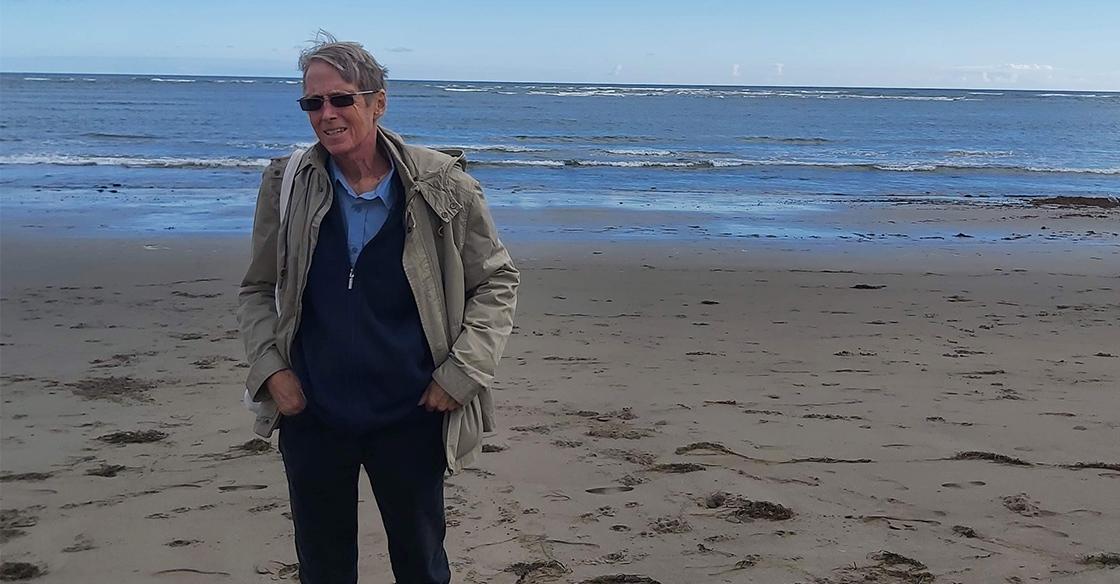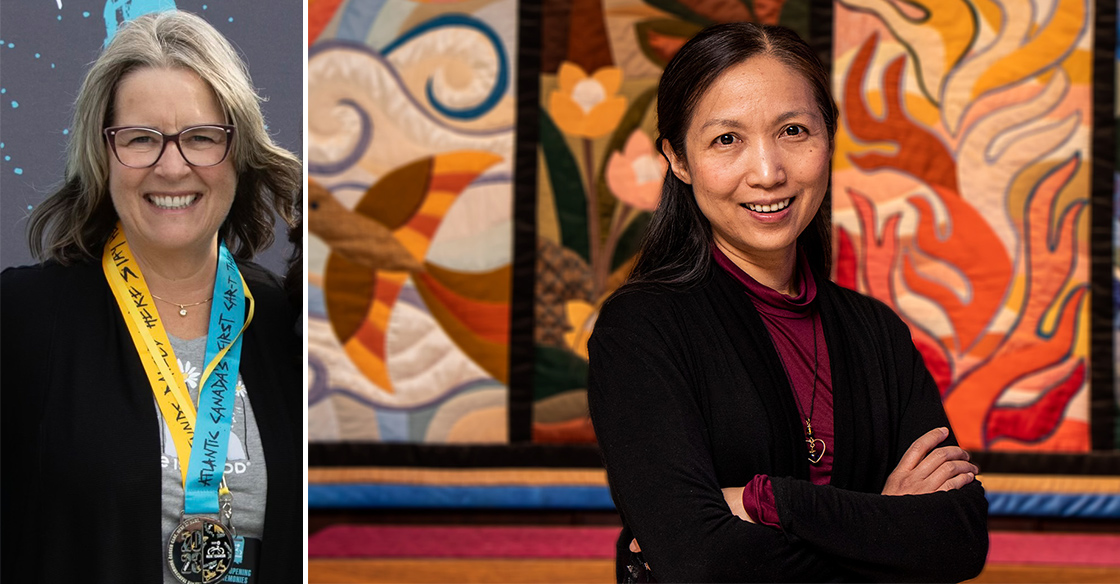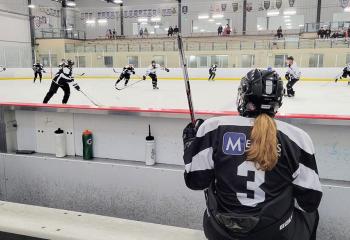
When David Ferrigno (pictured above) was diagnosed with stomach cancer in 2014, he didn’t really talk about it. While those around him complained about their everyday aches and pains, he remained silent despite the physical and emotional distress he was suffering.
A sinus cancer diagnosis less than 10 years later only deepened David’s pre-existing mental health issues, but rather than bottling up his emotions this time around, he’s taking concrete steps to move forward from the trauma he has experienced by opening himself up to the help of a professional counsellor.
Finances have been tight at times for David and his wife, with the added pressures that often come with a cancer diagnosis — from time off work to increased day-to-day expenses. Through a grant program funded by the QEII Foundation, which helps cancer patients at the QEII Health Sciences Centre access additional mental health supports, David was able to connect with a counsellor and begin the healing process.
“I’ve had two very different experiences with cancer,’’ he shares. “This time, I’ve learned how important it is to talk about what you’re going through — and I hope more people facing cancer know there’s support out there for their mental health, too.”
The grant program is being funded by Hockey for Hope: an annual, co-ed, inclusive charity hockey tournament created by cancer survivor Shay Needham in 2023 as a way of enhancing mental health support for QEII cancer patients.
Since its launch, Hockey for Hope has raised over $72,000 and counting for the fund, providing essential support to 76 cancer patients at the QEII.
Moving forward is what also prompted David to share his story — in hopes of helping others and as a way of expressing his gratitude to the many donors and supporters who make this vital fund possible.
David’s cancer patient navigator, Susan Lawrence, not only encouraged him to reach out for help but applied for the grant on his behalf and arranged for him to see a counsellor close to his rural Nova Scotia home.
David is making positive progress with his counsellor, who he says understands his cancer journey and has helped him break through what he terms “male mental barriers” about seeking help.
“I, with great appreciation, certainly acknowledge the assistance. I still have ongoing appointments with the counsellor, and we’ve decided that we’ll decide together when to stop,’’ he says.
David considers himself a very different person now. He explains that taking steps to improve his mental health rather than suppressing his feelings has significantly improved his life and is helping him work through the emotional challenges of being a two-time cancer survivor.
David’s prognosis is good, but he suffers from some long-lasting and painful side effects of surgery, chemotherapy and radiation. Like all cancer patients, he continues to live with the fear of what the future might bring.
However, he’s grateful to have beaten cancer a second time and is now focusing on healing — emotionally and physically — from the scars of the past decade. He says he’ll “always be appreciative” of the assistance he received from Hockey for Hope and the QEII Foundation.
“It has given me a boost when it was difficult to manage all of the added expenses,’’ he shares. “I feel very fortunate. Whatever help I’ve had, including this counselling, I appreciate it for sure.’’
Susan Lawrence has provided cancer care for 29 of her 36 years as a registered nurse. She explains that throughout her career, she has witnessed firsthand the toll a cancer diagnosis takes on mental health.
Cancer patients have access to mental health care through psychosocial oncology within the Nova Scotia Cancer Care Program. However, thanks to the incredible support of Hockey for Hope, care providers have had the opportunity to apply for grants on behalf of patients who could benefit from additional support — helping them access services that go beyond what’s publicly available.
“Any amount of money that can help someone is truly appreciated when they’re struggling and going through a cancer diagnosis,” says Susan. “There are often extra supports out there — but if patients don’t have private coverage or the financial means, this fund has made a big difference.”
As staff chaplain in spiritual and religious care at the QEII, Helen Chan provides non-denominational support to cancer patients on a regular basis. She has applied for a number of mental health grants since the fund was established.
From private counselling to treatments, therapies, or resources that can help relieve a patient’s anxiety or pain, Helen explains that the strength of this fund lies in its ability “to help provide different mental health support options based on an individual’s needs” and ongoing cancer care journey.
Helen and her colleagues have witnessed just how life-changing this support can be. They've seen it make a difference for young adults — like 19-year-old patients facing a diagnosis without friends who truly understand — and for newcomers navigating cancer in a language or culture that isn’t their own. No matter the circumstance, Helen says the fund helps close critical gaps — offering comfort, connection and care to those facing unique barriers.
As of April 2025, the mental health grant fund has been fully depleted — a clear reflection of both its impact and the growing demand. Applications are now paused until additional funding is secured.
For care providers like Susan and Helen, the need hasn’t gone away. In fact, it’s constant. That’s why community-driven events like Hockey for Hope are more essential than ever. Every dollar raised will play a pivotal role in reopening this vital program — ensuring more patients get the mental health support they rely on during some of their hardest days.
“The fund allows people to do something for their self-care and wellness and that’s beautiful,” says Helen. “I think this mental health grant is one of the things that gives people the encouragement they need.’’
To learn more or play in this year’s Hockey for Hope tournament, click here. To volunteer, get involved as a sponsor or donate auction items, email hockeyforhopetourney@gmail.com. To donate now and help ensure these mental health grants are available for cancer patients, visit: QE2Foundation.ca/HockeyForHope.

If you have a diagnosis of cancer and would like to see someone for mental health or other psychosocial care, you may be referred to psychosocial oncology by one of your healthcare providers, or you can self refer by calling the self referral line at 902 240 8129.
